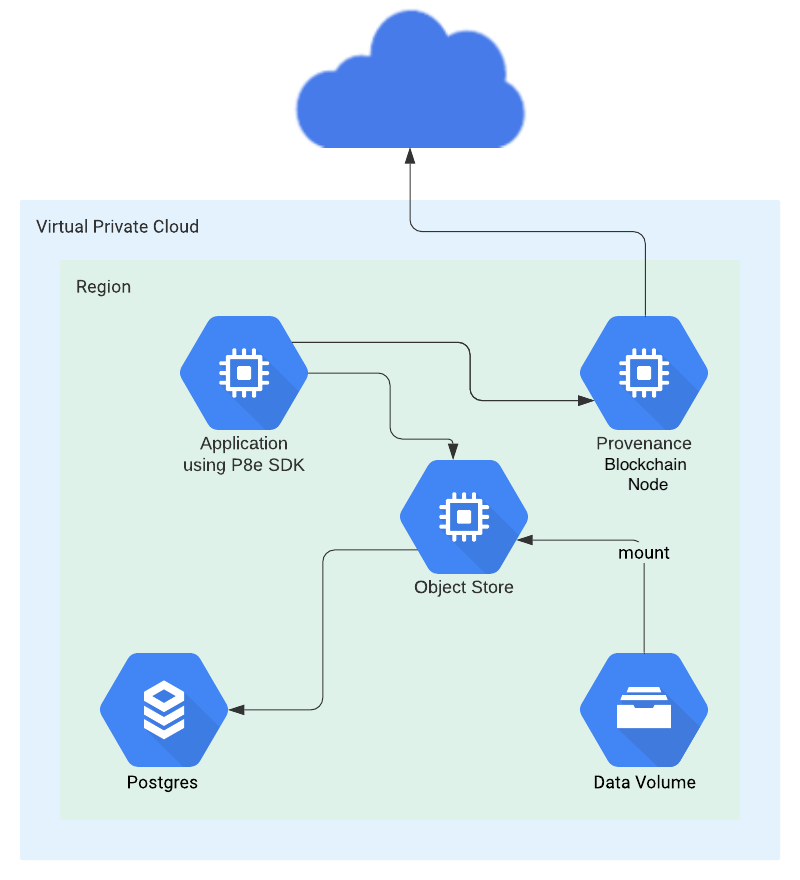Architecture
Diagrams
 (formerly nicknamed “P8e”)
(formerly nicknamed “P8e”)
Port Mappings
Encrypted Object Store does not currently contain any authentication mechanism. If you have a desire to publicly expose your instance, authentication and authorization should be provided externally, for instance with an API gateway.
Default port mappings (NOTE: these are all configurable and can be changed):
- Encrypted Object Store
- ingress - tcp:80
- Provenance Blockchain Node
- internet egress - tcp:26656
- ingress - tcp:26656-26657, tcp:9090, tcp:1317
Logical Description
Encrypted Object Store (EOS)
Object store can run in a few different configurations based on the needs of your BlockVault environment.
- No external multi-parties - If your BlockVault environment will strictly be handling single party contracts, or multi-party contracts where all parties are within your BlockVault execution environment, a single, privately addressable object store node may be used. The replication feature can be disabled.
- External multi-parties - If your BlockVault execution environment needs to execute multi-party contracts with some parties that exist outside of your EOS, the following are required:
- An EOS for your own BlockVault execution environment
- Replication feature enabled
Provenance Blockchain Node
A Provenance Blockchain node provides your BlockVault execution environment with a means to read events and send transactions to the distributed Provenance Blockchain network. See here for setup.
Postgres 13
EOS requires postgres for persisting data. The cpu and memory requirements will largely depend on the amount of data EOS environment will support.